Abdullah Frères
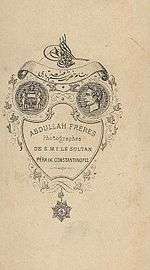
The Abdullah Frères (French for "Abdullah Brothers"; Turkish: Abdullah Biraderler) were a group of three Ottoman brothers of Armenian descent, Viçen Abdullahyan (1820–1902), Hovsep Abdullahyan (1830–1908), and Kevork Abdullahyan (1839–1918), who were photographers of international fame during the late Ottoman Empire.[1] They took pictures of scenic views and notable individuals, including sultans. Most of their photography was of the Ottoman Empire.
Viçen (later known as Abdullah Şükrü after converting to Islam) began his photographic career touching up photos for Rabach, who opened his photography studio in 1856 in the Bayazid district of Constantinople. In 1858, when Viçen's younger brother Kevork returned from his studies at the Murad Raphaelian Armenian Academy in Venice, they and another brother Hovsep decided to take over Rabach's photography studio and open their own, The Abdullah Frères.[1] In 1867, they sold their shop in Beyazid and moved to a more favorable location in Pera.[2] The Abdullah Frères subsequently became one of the most famous photographers in the Ottoman Empire.[2] In 1863, Sultan Abdulaziz declared the Abdullah Frères as the official court photographers and Outstanding Artists of the City, an epithet they used until the closure of the shop in 1899.[1][2] In 1886, at the request of the Khedive in Egypt, they opened a branch in Cairo, Egypt.[1]
Over their lengthy career, the Abdullah Frères photographed numerous Ottoman Sultans, Ottoman statesmen such as Ibrahim Edhem Pasha and Osman Nuri Pasha, international figures such as Mark Twain, scenic views, and more.
Gallery
-

Mark Twain. (1867)
-

Ibrahim Edhem Pasha. (around the 1890s)
-
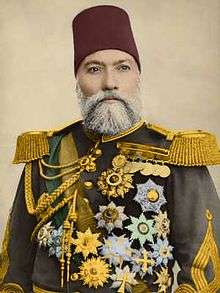
Osman Nuri Pasha. (around 1895)
-
.jpg)
View of Galata Bridge.
-

Group of Circassian men with Ottoman Official.
-
%2C_Hovsep_(1830-1908)%2C_Kevork_(1839-1918)_pre_1895.jpg)
A ceremony in Yıldız Hamidiye Mosque, Constantinople.
-
Portrait of the Romanian diplomat and memoirist Trandafir G. Djuvara.
-
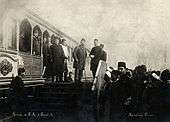
Photograph of Tawfiq Pasha.
-
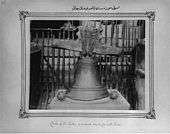
Bell of the Haghia Sophia.
-

The sortie of the First Mobile Artillery Bodyguard Brigade from the barracks
-
.jpg)
Street in Galata.
-

Mekteb-i Aşiret-i Humayun (Imperial Tribal School)
-
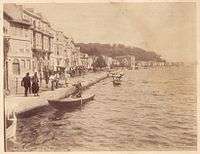
A dock in Büyükdere, Sarıyer, Istanbul.
-
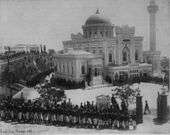
The Selamlik (Sultan's procession to the mosque) at the Hamidiye Camii (mosque) on Friday
-
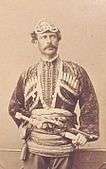
Georgian man (1870)
-
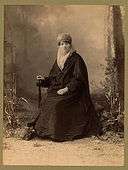
Turkish woman, full-length portrait, seated, facing front, holding parasol.
-
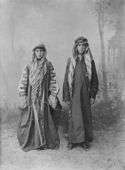
Students of Mekteb-i Aşiret-i Humayun (Imperial Tribal School)
-
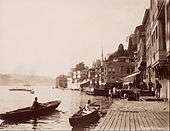
Rumelihisarı İskelesi
-

The Port from the Galata Tower
-

Holiday Workship at the Sinan Pasha Mosque
References
- 1 2 3 4 Hannavy, John (2008). Encyclopedia of nineteenth-century photography. New York: Routledge. ISBN 9780415972352. Retrieved 6 December 2012.
- 1 2 3 Shaw, Wendy M.K. (2003). Possessors and possessed : museums, archaeology, and the visualization of history in the late Ottoman Empire. Berkeley, Calif.: University of California Press. p. 141. ISBN 9780520233355. Retrieved 6 December 2012.
External links
- Mark Twain (Samuel Clemens) Signed Photo by Abdullah Frères, Constantinople 1867 Shapell Manuscript Foundation
